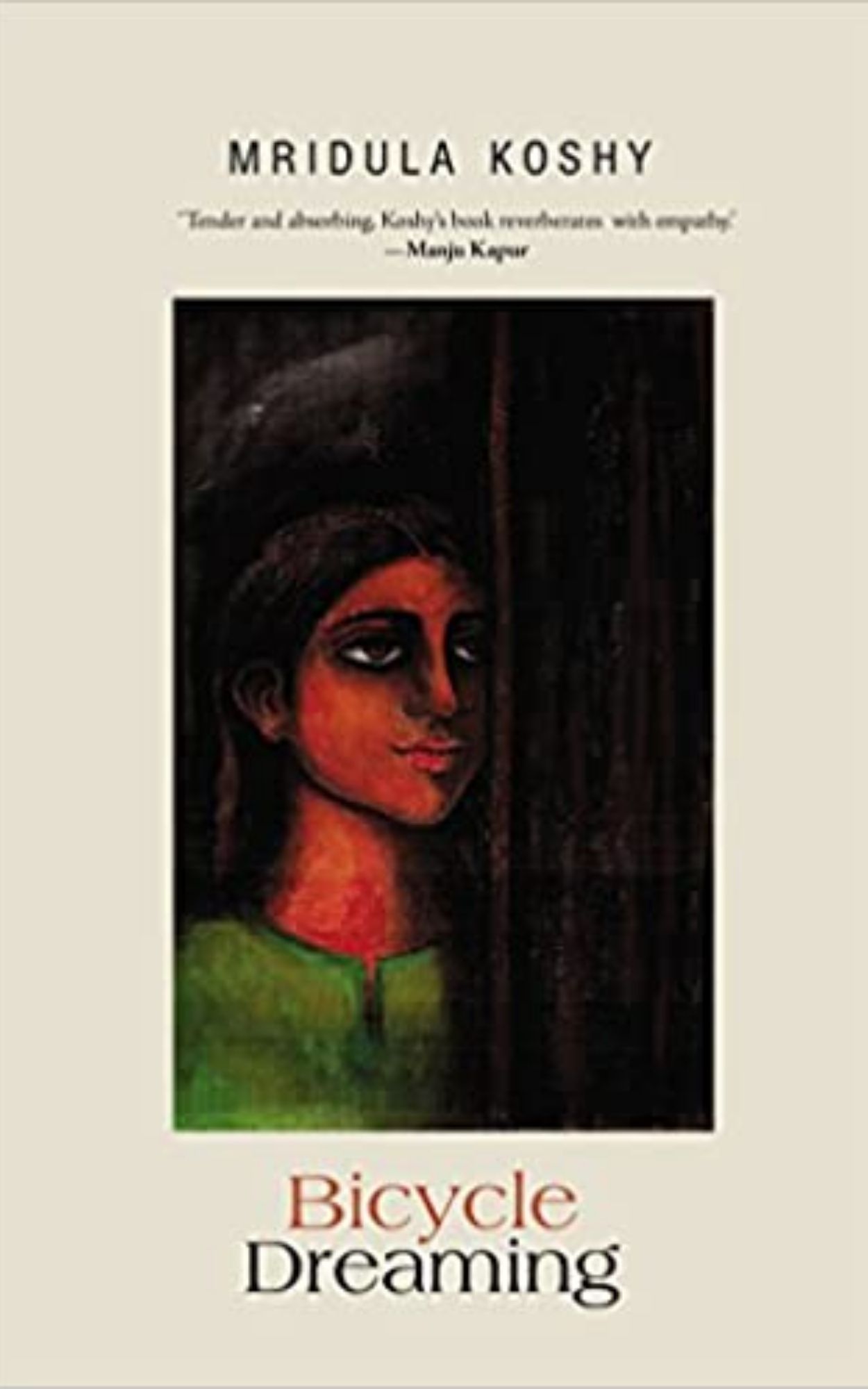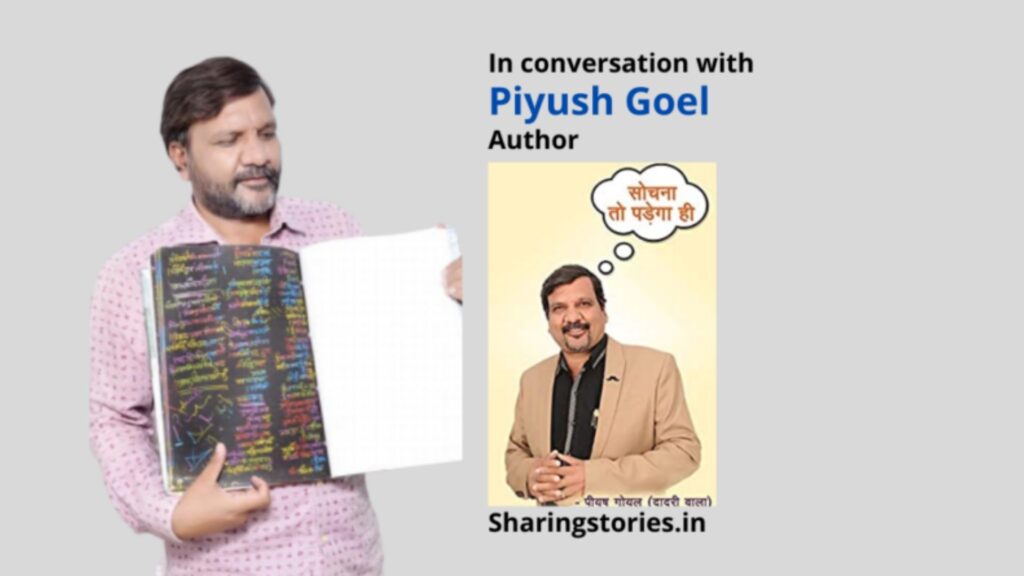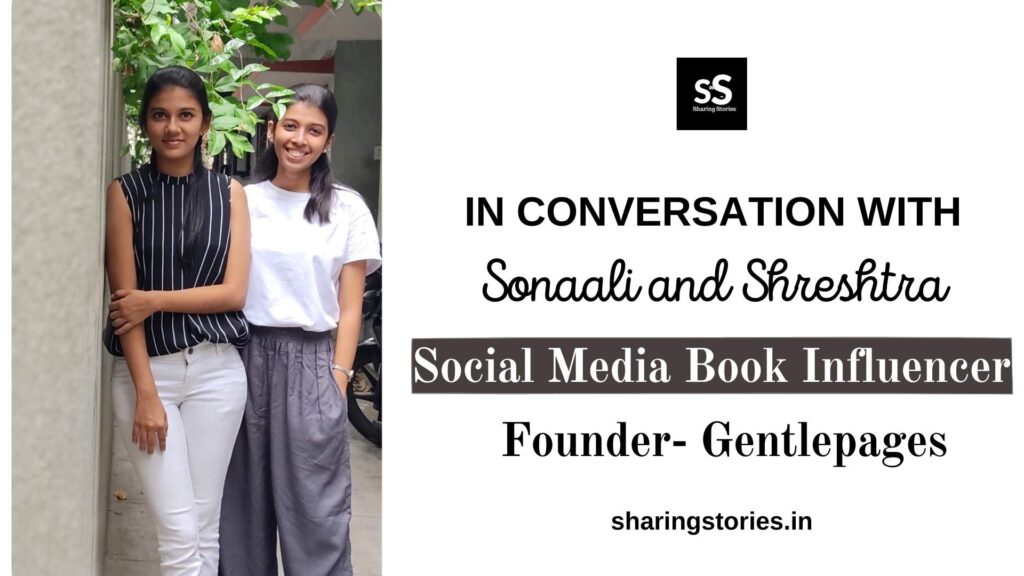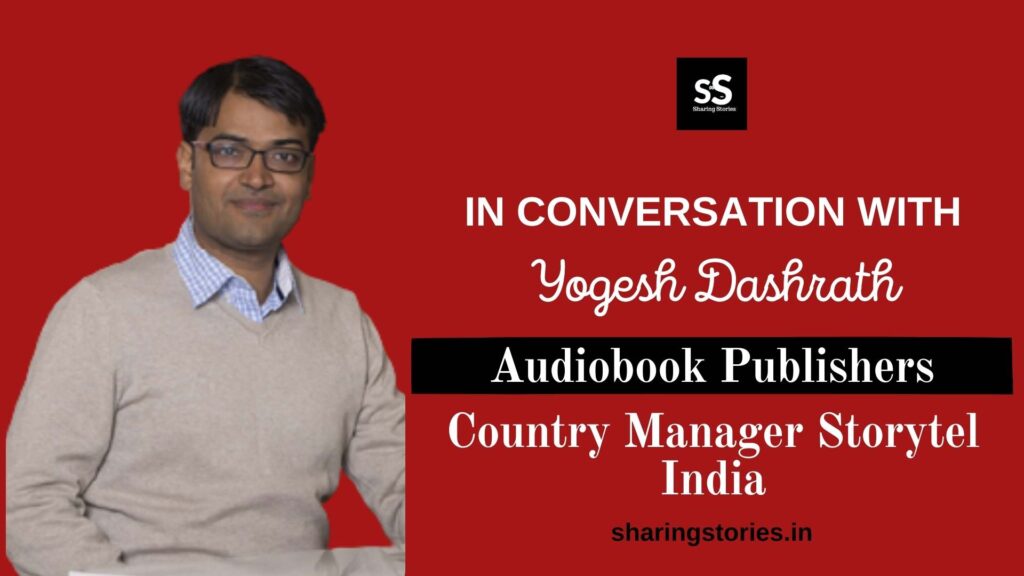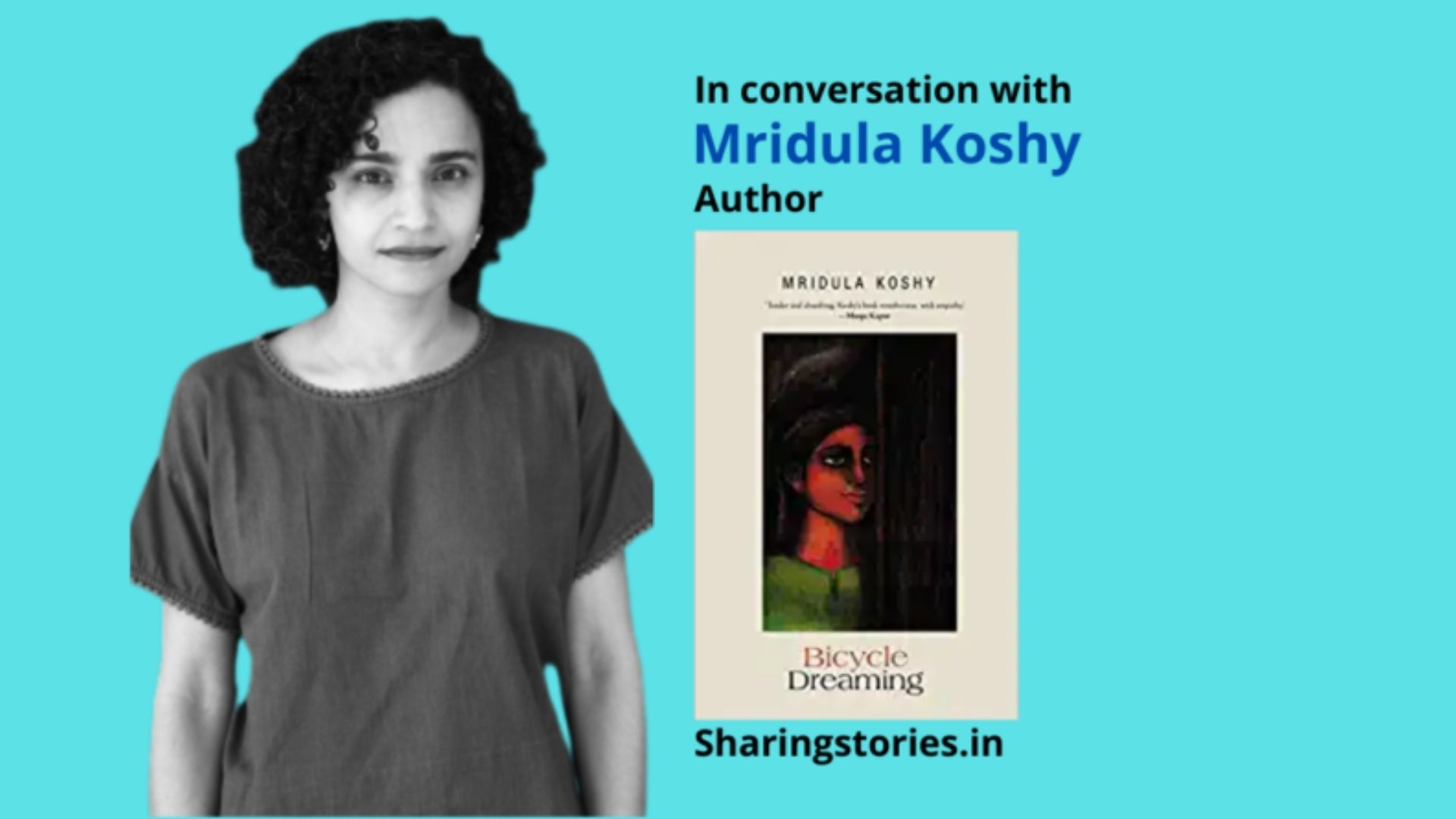
From one birthday to the next, thirteen-year-old Noor watches as her family comes apart. Her father, Mohammad Saidullah, a kabadiwala, loses his job pedalling his bicycle door-to-door to collect household discards; he is forced to join the ranks of those who scavenge in New Delhi’s landfills. Noor’s brother, Talib, works in a call centre; his aspirations for a better life are a constant source of friction. When Talib leaves the family after his father’s further downslide into poverty, and their mother, Ameena, follows him, Noor sees it as further evidence of her mother’s preference for the son over the daughter. Noor dreams of riding a bicycle but won’t allow herself to learn. Not until Noor falls for Ajith, a Dalit boy, is she forced from her place on the side-lines to enter into the fray of her own story.
Mridulaji, you are an accomplished author. At the same time you have been a Trade Union Organiser, Community Organiser, and a Librarian too. How did your journey take its shape?
My experience as a teenage migrant to the United States shaped a lot of who I am today in terms of my politics. I went from being a privileged member of Indian society to someone who was at the mercy of a new society structured around racism and anti immigrant ideology. Thankfully, I had good instincts both around recognizing oppression and around responding to it by seeking and acting in solidarity with others similarly oppressed. Many of my fellow Indians in the United States have trouble identifying with their fellow immigrants from the Indian and other communities. Their instincts honed from generations of upper class and caste upbringing in India are warped to say the least and they identify with their oppressors and seek to appease them. Hence the Indian American Howdy Modi brigade.
Your books have received highly acclaimed awards. How did you think of writing your first book, ‘If It Is Sweet’, which was also shortlisted for the Crossword Book Award 2010? Who is the favourite character from any of your books and why?
My first book was If It Is Sweet, a collection of short stories. Writing was almost the last resort choice for me, something I had avoided for 35 years of my life. I think I was scared to write because of the possibility that I might write poorly. And of course I did for the first few years. It took time, discipline, numerous efforts, continuing to live as a voracious reader, but now as a reader who brought the lens of trying to become a writer to my reading. I began writing in 2005 when I returned to India after 20 years of life abroad. But returning, I found a changed country, perhaps a more divided country than the one I left. At least the rhetoric of the times was quite different from that of the 70s and 80s when I had last lived in India. If I could have found my way to organizing, to becoming a part of an organization that works for justice, I doubt I would have become a writer. But instead I knew very few people in New Delhi, the city to which I returned and the only way I could think to be a part of the city was to write. I wrote about the city, I wrote to the city. And yes the city is my favourite character.
How long on average does it take you to write a book? What is the most difficult part of your artistic process?
It takes around three years to write one book. It took me 10 years to write three books. I don’t write anymore because I cannot write and do other things. Some other people can, like the excellent poet Michael Creighton, who is also coincidentally my partner. He writes, has a professional life, a family life and even a social life. I do one thing at a time. Right now I am working for the free library movement.
Are you working on anything at the present about which you would like to share with your readers?
I run an organization which operates four free community libraries. Thousands of people read voraciously in our libraries. We are a provocation to anyone who believes books are for the few or believes the self-justifying ‘those people won’t read.’ Our organization is also a lab for learning how to grow readers. That is, we develop best practices that help first generation school goers, and anyone else for that matter, to become lifelong readers. We also advocate for a free library movement, which will usher in excellent and free public libraries throughout the country. Nothing makes a democracy stronger than a citizenry that has the power to think. And nothing helps us think with greater strength and humanity than books. It stands to reason we must build access to books so we can grow a thoughtful society and a just and democratic country.
Please let our readers know more about your Free Library Movement and TCLP. How can any person be a part of this movement? What made you take steps towards the Library Movement in India?
Anyone can become a member of one of our libraries. If you can afford to pay 3000 a month for library membership in some amazing library you might think to head there except there is no difference between those amazing fees-for-membership libraries and our amazing libraries. No difference aside from the fact that we charge ZERO fees. Our libraries are spacious, have tens of thousands of books, free access to the net, programming that includes book clubs, art, theatre, music, dance, creative writing, science etc. I don’t think there is anything I’ve listed that anyone would argue shouldn’t belong to everyone. Shouldn’t every child be able to choose to play a musical instrument or find themselves in a Science workshop discussing their cosmic address and making their own working cardboard telescope. Yet we build a society in which only the few can have such experiences. And these experiences are not extra or luxury. They are basic. Basic to being able to build our capacity to dialogue with ourselves and with one another.
People can also join the library as volunteers and hopefully eventually grow themselves into free library activists. Volunteers do a lot of the labour of running the library side by side with staff and members. It is this labour that helps us to operate for free. Volunteers also spend their privilege on behalf of members who don’t have the same privileges. Some are filmmakers. Others doctors. Others teachers. Others lawyers. The former Bombay journalist for example reached out to A list actors and actresses for the items they donated to the exciting fundraiser auction we are holding in December. This is a rudimentary example of how you spend your privilege on behalf of others. Our architect volunteers spend it very directly when they design our libraries. Our educator volunteers build the curriculum that is normally only available to the richest children.
According to you, which are the 5 books everyone should read and also who are your top 3 authors and what impact did they have in your journey as a writer?
I don’t have such a list. We are all so different from one another and our needs can be different too. I will mention books that help us think about one thing we all need: justice. These are some books that have helped me think about the big questions in life while serving up entertaining story telling at the same time. The Old Testament in the Bible is one such book. I also like Karen Armstrong’s, In the Beginning. It helped me deal with my spiritual loneliness. Haldor Laxness’ Independent People helped me as a writer. He is such a gutsy writer and I realized that I needed to be less afraid of making a fool of myself. I return all the time to Elliot Weinberger’s essays for their experiments with form. Faulkner’s Sound and the Fury is an experiment on so many levels. I like experiments. Experiments shed new light, they are often how we course-correct and we are often enough on the wrong road or stuck at a seeming impasse.
Tell us a bit about your family, likes and dislikes as a person. Is Mridula Koshy as a librarian and an activist different from the Mridula Koshy the person?
Yes, definitely I am different out in the world than I am home. I can’t really say too much about it as every attempt turns into some sort of performance of myself and so no, I can’t really tell you who I am at home. My partner says I am silly. My children probably would say something else.
Could you share a few tips for Young Authors? If you had to do something differently as a child or teenager to become a better writer as an adult, what would you do?
I would advise them there isn’t much to be afraid of besides lack of discipline. Being afraid of making a fool of yourself when you haven’t even written yet is almost a definition for cowardice. That’s who I used to be. There are very few professions that don’t require discipline. Being a parent for example requires you to get up every morning. So writing too is just another profession and there is little to be gained from tying it to ideas of inspiration or talent. Parents don’t wait for inspiration to parent and don’t get bogged down in questioning their talent for parenting. If a book is to be written, search for the discipline to write it. Ideally fix a time of day and make a commitment to the hours you have to spare. Give up much else in your life so you can find the spare hours. Don’t give up on those who depend on you – your children, for example. But definitely narrow your focus to the writing. Once you have the book, you can engage in all manner or embarrassment, regret and self-incrimination. You can also take the alternate path which many writers choose to take and be delusional. What matters is there is a book – good, bad or indifferent. There is a possibility that it will contribute something worthwhile to the ongoing conversation about who we are, and how we are to live together.
At Sharing Stories, we have an ongoing campaign ‘World Harmony through Writing’ where we encourage writers to pen down their deepest internal thoughts, daily for at least fifteen minutes. Their new ideas and profound thinking shall help to bring out some positive changes in the world we live. We would love to hear you thoughts about this initiative. Do you view writing as a kind of spiritual practice?
I don’t actually. I suppose writing can be spiritual, just as it can be therapeutic or cathartic or painful. What matters is that if you are trying to do it, then you get on with it and get it done. If you are trying to stop then you stop, ideally with few regrets. Writing is not the most important thing or the only important thing you can do in life. It is alright to do it or not do it, but it would be a waste of your life if you waffle around about the doing of it.
What if you had to live with only three things all your life, what would the three things be?
My three children, though they are not things.
What if you were given the power to change one thing from this world, what would you change?
Our failure to recognize we are brothers and sisters.
What if you had all the money in this world, what would you do first?
Put a free and excellent library within walking distance of everyone. That’s the same as putting the best of humanity within walking distance of every human being.
Favourite Place, Person, Food , beverage: Delhi, Michael, red fish curry (I’m a vegetarian),kombucha
Your other Talents – I know how to build an organisation
Your First Love – my mother
Favourite Quote – you are who you pretend to be
Favourite Character from a book – Anna Karenina
Need Publishing Assistance?

